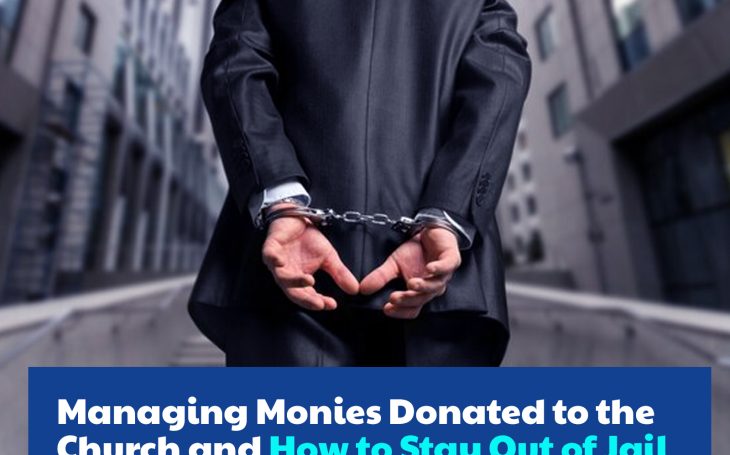
Introduction:
Managing the financial aspects of a church is a crucial responsibility for pastors. Beyond the spiritual guidance they provide, pastors must also navigate the realm of money management to ensure funds are handled with integrity.
In this blog post, we will explore the importance of managing church donations effectively and discuss key strategies for pastors to stay out of legal troubles. By following these guidelines, pastors can uphold transparency, build trust with their congregation, and fulfill their fiduciary duties.
1. Understand Legal Obligations:
Pastors need to familiarize themselves with the legal requirements governing the management of church funds. Different countries may have specific regulations regarding financial reporting, tax compliance, and the use of restricted donations. By understanding these obligations, pastors can ensure they are compliant with the law and avoid potential legal consequences.
2. Establish Clear Financial Policies:
Transparency is essential in maintaining the trust of the congregation. Pastors should develop and communicate clear financial policies that outline how funds will be handled, allocated, and tracked within the church. These policies should address the segregation of restricted and non-restricted funds, approval processes for expenditures, and financial reporting requirements.
3. Implement Proper Accounting Systems:
An effective accounting system is crucial for tracking church finances accurately. Pastors should consider using church management software, such as ChurchPlus Accounting [churchplus.co]
Register to get Free One month at https://my.churchplus.co/register, to streamline financial processes, manage donations, and generate comprehensive financial reports. These systems can help pastors maintain organized records, facilitate transparency, and ensure compliance with financial regulations.
4. Implement Internal Controls:
To minimize the risk of misappropriation, pastors should establish internal controls within the church’s financial operations. This includes segregating duties, implementing checks and balances, and conducting regular financial audits. By enforcing these controls, pastors can detect any irregularities early on and prevent potential financial mismanagement.
5. Educate Congregation on Financial Stewardship:
Creating a culture of financial stewardship within the congregation is crucial for the long-term sustainability of the church. Pastors should educate their congregations on the importance of giving, the purpose of different funds, and how donations are utilized. By fostering an understanding of financial responsibility, pastors can foster a community that values transparency and actively participates in the financial well-being of the church.
6. Seek Professional Advice:
When in doubt, pastors should not hesitate to seek professional advice from accountants, lawyers, or financial consultants experienced in church finances. These experts can provide guidance on legal compliance, financial management best practices, and help pastors navigate any complex financial scenarios.
Conclusion:
Managing church finances is a responsibility that pastors must undertake with diligence and integrity. By adhering to legal obligations, establishing clear financial policies, implementing robust accounting systems, and educating the congregation, pastors can effectively manage donated funds while maintaining transparency and avoiding legal troubles. Remember, staying out of jail as a pastor requires proactive financial management, prudent decision-making, and a commitment to serving the congregation with utmost honesty and integrity.


